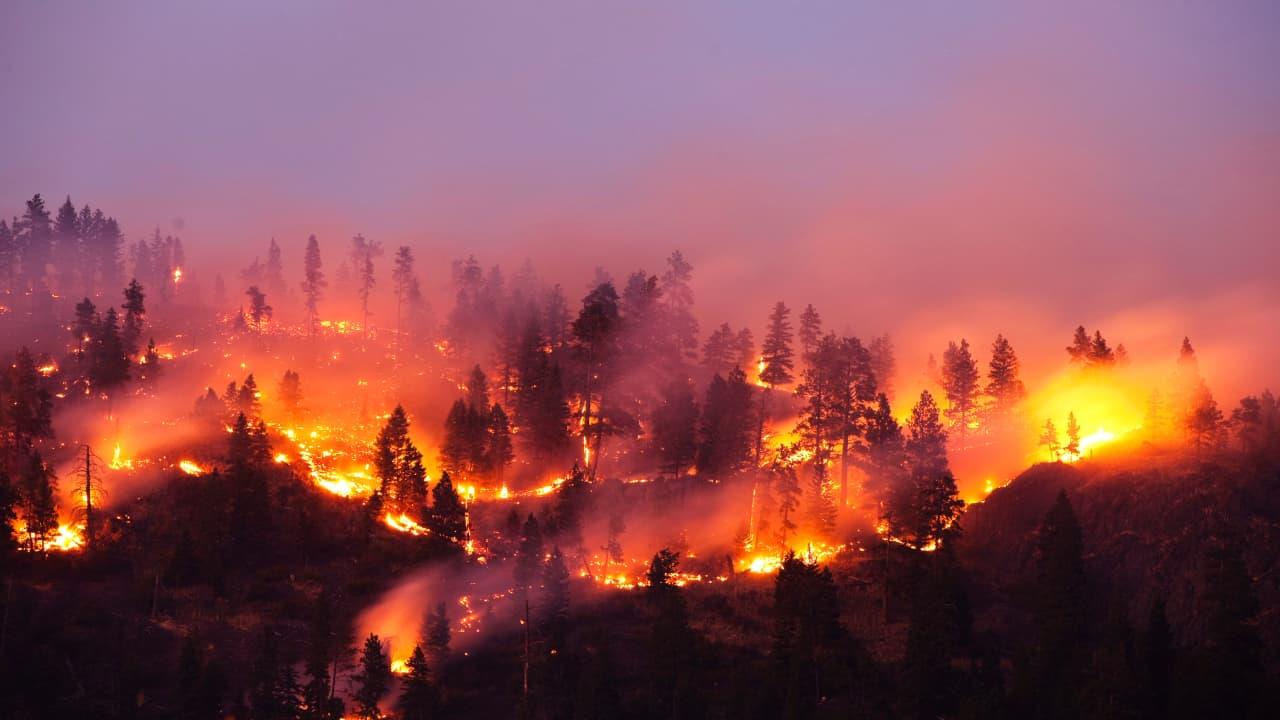
CO2 Levels Hit Record High In 2024: UN Warns Of Climate Tipping Point
Carbon dioxide levels in the air reached a new all-time high in 2024, according to the United Nations. The amount of CO2 in the Earth's atmosphere increased more in 2024 than in any other year since measurements began in 1957. This alarming trend highlighted by the United Nations, is now urging immediate steps to cut emissions and slow climate change.
The World Meteorological Organization (WMO), a part of the UN, reported that not only did CO2 levels reach their highest ever, but so did methane and nitrous oxide. These greenhouse gases have the ability to trap heat in the atmosphere, leading to global warming.
What Led to the Increase?
Multiple factors have contributed to the significant rise in CO2 levels. One reason is the continued use of fossil fuels such as coal, oil, and gas for energy production. Another reason is the increased frequency and intensity of wildfires, which release more carbon into the air. Moreover, the natural ability of the environment to absorb CO2, through forests and oceans, appears to be decreasing. This means that more of the CO2 we create remains in the atmosphere, causing the Earth to warm.
The report comes just before COP30, a major climate summit that will take place in Brazil in November. At this event, world leaders will discuss strategies to combat climate change and reduce emissions. Another report, expected to be released next month, will provide details on the actual amount of greenhouse gases released in 2024, and early indicators suggest that these levels have also increased.
Climate Commitments
In 2015, almost every country signed the Paris Agreement, which aims to limit global warming to well below 2°C, and ideally to 1.5°C, compared to pre-industrial times. However, the world is not moving in the right direction. In fact, 2024 was the hottest year ever recorded.
A Dangerous Feedback Loop
The WMO is particularly worried about a“vicious cycle” that appears to be forming. As the planet warms, we see more wildfires and melting permafrost, which release more greenhouse gases into the atmosphere, leading to further warming. At the same time, warmer oceans are less able to absorb CO2 from the air.
Dr Oksana Tarasova, a leading scientist at the WMO, warned that we could be approaching a“tipping point” where natural systems stop helping and instead worsen climate change.
The WMO emphasized that reducing human-caused CO2 emissions to“net zero” should be the main goal of global climate efforts.“Net zero” means producing the same amount of CO2 that is removed from the atmosphere.
The Numbers
In 2024, CO2 levels reached 424 parts per million (ppm). This is a sharp increase from 377 ppm in 2004, and even more significant when compared to pre-industrial times. Methane levels reached 1,942 parts per billion, and nitrous oxide levels hit 338 parts per billion. These are increases of 266% and 125% since 1750.
CO2 is the most significant of the three gases, responsible for about two-thirds of the warming effect. However, methane, although it stays in the atmosphere for only about 10 years, is much stronger at trapping heat. Around 60% of methane emissions come from human activities, especially from farming and waste. Nitrous oxide, which is largely from agricultural fertilizers, accounts for about 6% of the warming.
Climate Change Is Science, Not Belief
In response to growing doubt in some regions, Dr Tarasova said, "Climate change is not a religion. It's a science. What we are doing is making measurements, delivering the data."
The message from the WMO is clear: the time to act is now, before the Earth's systems shift beyond our control.
Source: Phys
Legal Disclaimer:
MENAFN provides the
information “as is” without warranty of any kind. We do not accept
any responsibility or liability for the accuracy, content, images,
videos, licenses, completeness, legality, or reliability of the information
contained in this article. If you have any complaints or copyright
issues related to this article, kindly contact the provider above.
Most popular stories
Market Research
- Thinkmarkets Adds Synthetic Indices To Its Product Offering
- Ethereum Startup Agoralend Opens Fresh Fundraise After Oversubscribed $300,000 Round.
- KOR Closes Series B Funding To Accelerate Global Growth
- Wise Wolves Corporation Launches Unified Brand To Power The Next Era Of Cross-Border Finance
- Lombard And Story Partner To Revolutionize Creator Economy Via Bitcoin-Backed Infrastructure
- FBS AI Assistant Helps Traders Skip Market Noise And Focus On Strategy




















Comments
No comment